From Phee's Journal – February
![]()
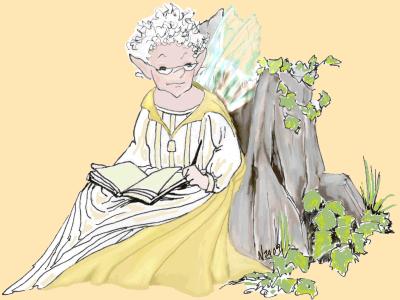 Bottom has been our guest for a few months now and seems somewhat content, although I am sure he would like to be returned to his own place and time. To keep himself busy he has borrowed Fedlarol's loom and is weaving each of us a lovely cloak. The girls are thrilled with his work and help him with sewing seams and loops and buttons. It must be difficult for him with that great awkward donkey's head but he is of good spirit and does talk a bit as he works and brays happily now and then, much to the vexation of our poor ears.
Bottom has been our guest for a few months now and seems somewhat content, although I am sure he would like to be returned to his own place and time. To keep himself busy he has borrowed Fedlarol's loom and is weaving each of us a lovely cloak. The girls are thrilled with his work and help him with sewing seams and loops and buttons. It must be difficult for him with that great awkward donkey's head but he is of good spirit and does talk a bit as he works and brays happily now and then, much to the vexation of our poor ears.
We have promised Bottom he will be returned to his own time as soon as certain details are cleared up by our wizard Ambart and a critical adjustment made to the time-line that will help him reenter his own history without any complications. This reentry must happen at the exact instant Puck reverses the spell that gave Bottom the Donkey's head with the words 'Now, when thou wakest, with thine own fool's eyes peep'.

A Midsummer Nights Dream
By William Shakespeare
Act One Scene One
(Copies of the play, or a synopsis, are available on the internet,
your local library, or any bookstore.)
Theseus and Hippolyta are discussing their upcoming nuptials and giving orders to the Master of Revels, Philostrate for the celebration. (Philostrate, The Master of Revels is similar to a very special party and wedding planner.)
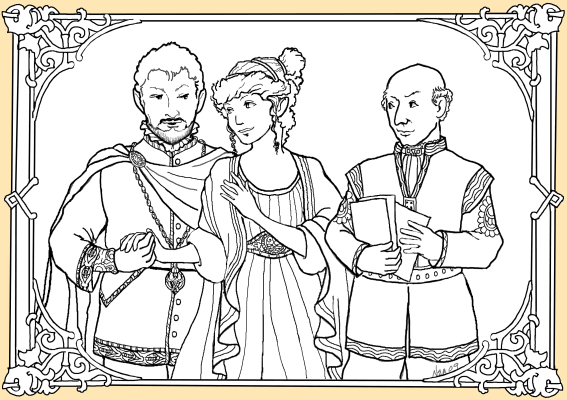
And then the moon, like a silver bow new bent in heaven, shall behold the night of
our solemnities.

As they conclude this Egeus, Hermia's father, Hermia, Demetrius and Lysander enter. Egeus demands that Hermia marry Demetrius. She wants to marry Lysander. Egeus has come to ask Theseus to enforce a law condemning her to death if Hermia does not obey him. Hermia boldly defends her desires, but it is of no use. Theseus gives her only two choices, to marry Demetrius or be put to death.
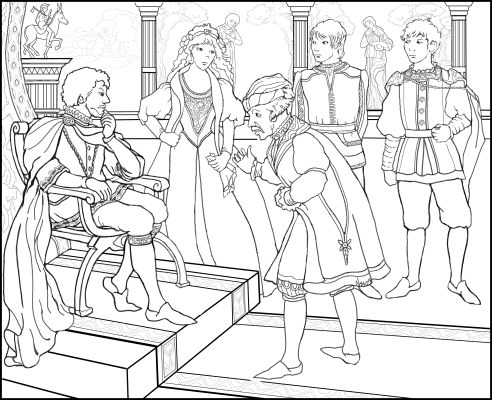
Full of vexation come I, with complaint against my child, my daughter Hermia.

All have exited except Hermia and Lysander. Lysander proposes that they run away to his aunt's home, some miles from Athens and get married. Hermia agrees and they plan to meet the next night at midnight in the forest to flee.
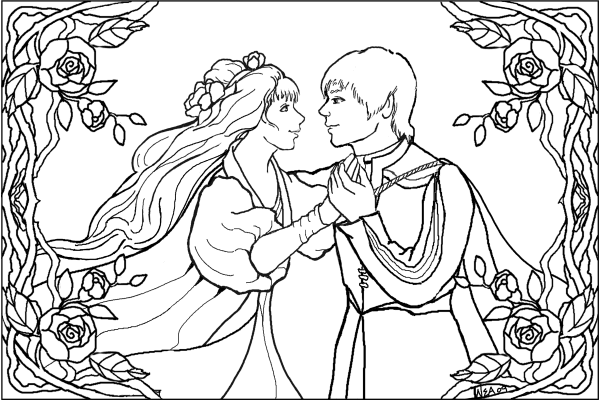
There, gentle Hermia, may I marry thee.

Helena enters and proclaims her love for Demetrius and her sorrow that he does not return the love. Hermia tells her that she and Lysander are eloping and Helena may have a better chance to win Demetrius' love. They tell her of their meeting in the wood.
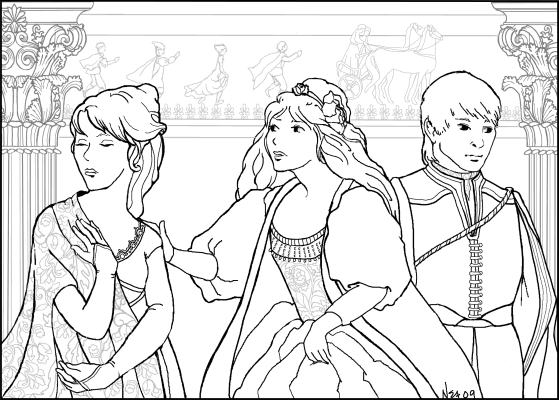
Take comfort: he no more shall see my face.

Helena plans to tell Demetrius of Hermia and Lysander's plan to elope.
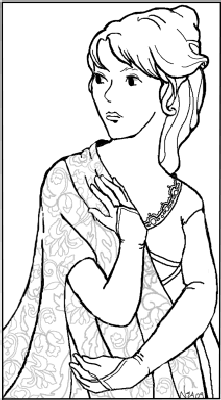
Here in mean I to enrich my pain, to have his sight thither and back again.
![]()

A Midsummer Nights Dream
By William Shakespeare
Act One Scene Two
In Act 1 Scene 1, Theseus has sent Philostrate to prepare the entertainments for his wedding party. One entertainment will be a play based on the myth of Pyramus and Thisbe, two star crossed lovers who meet a tragic end.
In Act One Scene 2 the actors who will perform this play are not professional or schooled actors but aspiring actors of the working class. I have found them rather rudely treated, for in my imagination they would have flair and be a bit apart, as aspiring artists are.
Even though it is not mentioned directly in this scene it would help to know a few details. In this play within the play you may guess that Lady Thisbe and Pyramus are in love, and their parents disapprove. Lady Thisbe arrives at their meeting place first and is frightened by a lion who has just made a kill and runs away leaving her scarf behind. Pyramus sees the bloodied lion and his love's scarf and jumps to the conclusion that the lion has eaten her and kills himself. Quince calls the play 'a lamentable comedy with the most cruel death'.. Then he calls each actor forth and tells them what part or parts they will play.

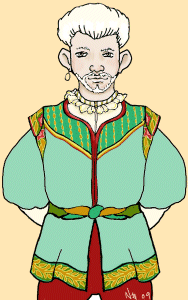
Peter Quince, a carpenter has written the play and taken the role of director. He invites his fellow actors to his house in Athens to hand out the scripts and roles to be performed for the Duke and the Duchess on their wedding day.
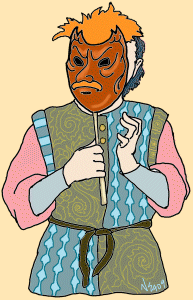
Nick Bottom is a weaver who loves playacting and costumes and given the chance would play every part. Quince names him to play Pyramus, the gallant lover who kills himself thinking his love is dead.
'What is Pyramus? A lover, or a tyrant?'
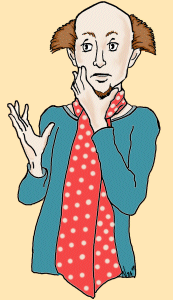
Francis Flute, is the bellows mender. Quince has chosen him to play Lady Thisbe.
'Nay, faith, let not me play a woman; I have a beard coming.'
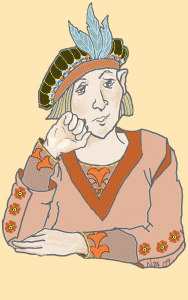
Robert Starveling, a tailor is chosen to play Thisbe's mother and Moonshine (which is just that, the moon shining on the scene). Actors were often required to play more than one role and men always played the women's parts.
'Robert Starveling, you must play Thisbe's mother.'
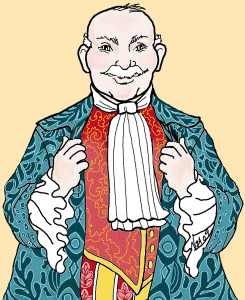
Tom Snout. A tinker is to play the role of Pyramus' father and a wall that Thisbe and Pyramus meet on each side of and talk.
'You, Pyramus' father: myself, Thisbe's father'.
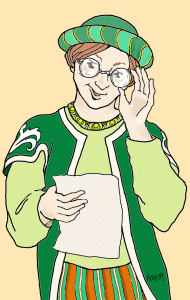
Snug the joiner is to play a lion. The lion's role is only to roar.
'Have you the lion's part written? Pray you, if it be, give it to me, for I am slow of study.
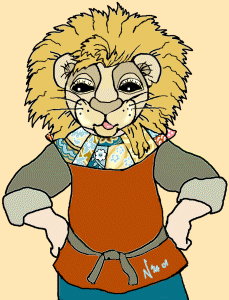
Bottom jumps in here having grabbed the lion's head.
'Let me play the lion too; I will roar, that I will do any man's heart good to hear me'
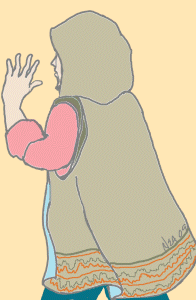
The actors plan to meet the next night in the palace wood at the Duke's oak to rehearse the play.
Bottom exits saying, 'Enough; hold or cut bow-strings'

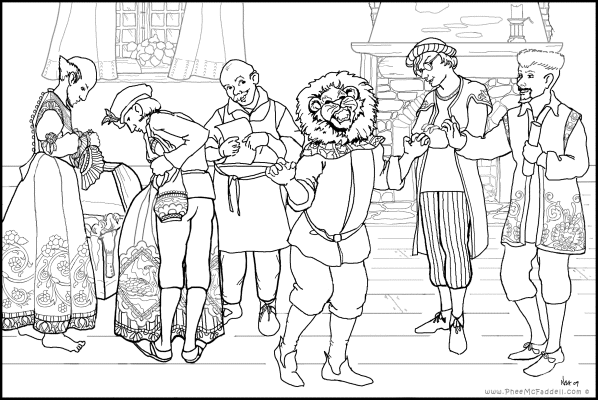
"I will roar, that I will make the duke say 'Let him roar again, let him roar again.'"

![]()
Act 1 coloring pages.
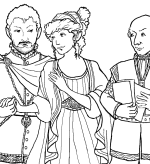
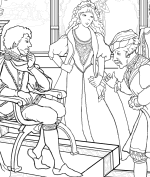
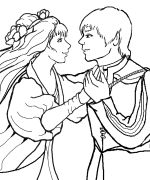
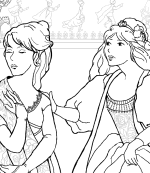
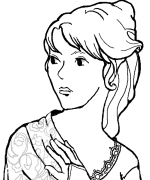
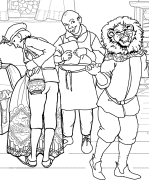
Click an image for the coloring page.
![]()

![]()
![]()
![]()
![]()
![]()
![]()
![]()
![]()
![]()
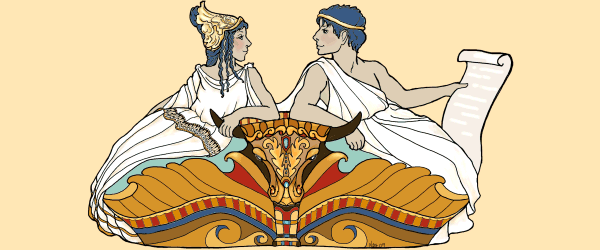
![]()